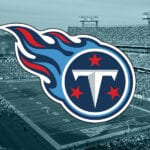The Detroit Tigers traded LHP Justin Wilson and C Alex Avila to the Chicago Cubs for prospects Jeimer Candelario and Isaac Paredes along with a player to be named or cash.
Wilson has been absolute dynamite throughout 2017, posting a 2.68 ERA. In May, he took over the closer role in Detroit following the downfall of former Tiger Francisco Rodriguez. Wilson has embraced the spot, posting 13 saves on the year. He is set to become a free agent in 2019.
Alex Avila, son of Tigers GM Al Avila, spent 2009-2015 in Detroit. He returned to the Motor City over the offseason, signed as a backup catcher behind James McCann. However, Avila’s numbers made him difficult to leave out of the lineup, with a .271 average along with 11 dingers and 32 RBI’s.
The Chicago Cubs needed assistance in the bullpen. Adding a cheap fast-throwing lefty is just about as good as it gets. Avila will likely be used to split time with Wilson Contreras at catcher.
Wilson and Avila have been under trade speculation for quite a while. But was this the best move for Detroit? Here are a few pros and cons from this trade.
Pros
If this trade doesn’t exemplify how valuable a lefty pitcher is, I don’t know what will. Candelario is a massive upgrade for the Tigers’ farm system, ranked as the No. 1 prospect in Chicago. He is also in the top 100 prospects in all of baseball.
Candelario is a 3B/1B switch hitter with excellent power. He is a future MLB cleanup hitter and can start in the majors as soon as one or two years. While he may not start regularly over Miguel Cabrera at first or Nick Castellanos at third in the near future, he may find his way as a designated hitter, replacing the aging Victor Martinez.
Paredes is the Cubs’ No. 10 prospect. He is the third shortstop prospect the Tigers have added this season along with Sergio Alcantara and Jose King, although some scouts expect him to shift to second or even third base later in his career.
At only 18 years of age, Paredes leaves a potentially large upside down the road. He was a solid defender in A South Bend and showed the ability to play anywhere in the infield. Although he lacks speed, he has a thick build and possess superior strength for an 18-year-old. He gives the Tigers an upgrade in both youth and defense, two areas in which the Tigers typically blunder.
Cons
The only real con of this trade is that the Tigers once again failed to deal any of their expensive veterans. This is their second trade of 2017, but neither addressed the unimaginably high contracts of Justin Verlander, Miguel Cabrera, Jordan Zimmermann, Victor Martinez or Justin Upton.
There were also rumors floating about Verlander going to the Cubs. Tigers’ fans may be disappointed that his name was not thrown in this deal along with the others.
Outlook
There is little to be disappointed about with Wilson and Avila heading to the Windy City. No, it does not even begin to assist the payroll. But Wilson has no role in a rebuilding Tiger club. He received interest from a variety of teams and Al Avila would have been dumb not to trade him.
Some expected Alex Avila to stay in Detroit for no reason other than that he GM’s son. Credit must be given to Al Avila for following his head rather than his heart. Alex Avila was unexpectedly hot throughout 2017, but has cooled off in recent weeks. This makes it all more impressive that the senior Avila dealt him.
The bottom line is that the Tigers did what they had to do if they are serious about rebuilding. They waited right up until the trade deadline and watched the Cubs and Dodgers duke it out for the Tigers’ stellar lefty. In the end, it was Chicago that gave the better offer of two top prospects along with a player to be named or cash. This was well-played by Detroit.








